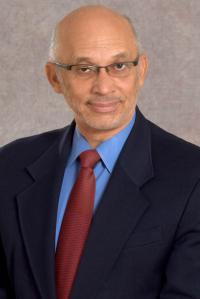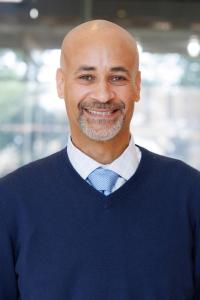
Columbia Mailman School Strengthens Its Commitment to Service Learning
For generations, hands-on public health work has been a cornerstone of a Columbia Mailman School education. During the summer between their first and second years, master’s students apply their classroom learning to real-world public health challenges, working with one of approximately 300 organizations worldwide as part of their Applied Practicum Experience (APEx). Strengthing this committment, the School is now introducing service-learning opportunities through select courses during the academic year.
As the first step in this process, two courses in the Heilbrunn Department of Population and Family Health (PopFam) are providing students with the opportunity to work alongside staff at New York City-based organizations. In tandem, several students are working on yearlong service-learning projects with community-based organizations that engage with vulnerable populations. This fall, the School’s Office of Education is providing support for additional faculty schoolwide to develop their own service-learning offerings. This effort is made possible by generous support from the Charina Endowment Fund.
A recent student survey found strong support for service learning. Nearly 70 percent of first-year students said service learning was an important or very important part of their graduate school education, with motivating factors including professional development, opportunities to transition to full-time employment, and engagement with the local community.
Last spring, students enrolled in the course “Adverse Childhood Experiences and Trauma Informed Care,” began the semester by studying the scientific evidence on childhood adversity and how to address it. Then, they divided into teams to apply what they had learned by working alongside staff in one of three local organizations serving immigrants and communities of color. For their final project, teams worked with their organizational partners to create trainings in childhood trauma and adverse childhood experiences (ACEs)—and how to respond to the effects of trauma and prevent re-traumatization. Throughout the semester, they received robust support from instructor Bijan Kimiagar, TA Joshua Carpenter, and members of the Trauma-Free NYC Team.
Taking a similar approach, another course, “The Public Health Impact of Sexually Transmitted Infections,” combines instruction on the public health dimensions of STIs with hands-on work in community and school-based health clinics and the New York City Department of Health and Mental Hygiene. The course’s instructor, Alwyn Cohall, professor of Population and Family Health, Sociomedical Sciences, and Pediatrics, explained the purpose of the course redesign. “Our goal was to expose students to front-line public health workers, giving them the chance to collaborate to apply their know-how to real-world challenges—namely, preventing and managing sexually transmitted infections in our community,” he said.
Faculty and staff in PopFam worked to transform the two courses to align with a pedagogical model called critical service learning, which combines academic study with community service to effect transformative change. “We developed these courses in a deliberate way to ensure that everyone benefits—both students and the organizations,” says Wanda Garcia, director of community engagement at Trauma-Free NYC, and one of the leads on the project. “So far, it’s been a great success.”
“At Mailman, we’ve always believed that learning shouldn’t stop at the classroom door,” said Michael Joseph, Vice Dean for Education. “Service learning gives our students the chance to connect theory to practice—to work with communities, not just study them. These experiences shape not only their skills, but also their sense of purpose as public health professionals.”
Tangible Results
At the end of the spring semester, teams of students in Cohall’s class presented the culmination of their work. They discussed collaborating with partner organizations to conduct surveys among people served by those organizations and to create maps of community resources. Their effort informed recommendations on how organizations can expand access to STI services. Staff from organizations attending the presentations universally praised students’ efforts.
At the JFK campus in the Bronx, students and staff at an on-site health clinic evaluated high schoolers’ awareness of the clinic’s services and identified barriers to utilization. A bilingual survey and focus group revealed that some high schoolers were unclear about whether parental involvement was necessary for sexual and reproductive care (it is, and most students have a consent document on file) or whether health insurance is needed (services are free). Students recommended targeted outreach through teachers and staff, physical posters, and online.
“The quality of the data that you got back in return for all of the effort [you gave] and all of the real thoughtfulness and openness to listen to the different stakeholders is tremendous,” said Dina Romo, a pediatrician affiliated with several New York City hospitals, including NewYork-Presbyterian/Columbia University Irving Medical Center. “I want to congratulate you and thank you for getting us this incredible data.”
“I appreciated that we had the opportunity to work in the community while learning in the classroom,” Aleya Philip, a student on the JFK team, said. “I was able to witness firsthand the barriers students face in accessing STI-related services and strategize ways to improve outreach and engagement.”
“It’s exciting to see our students learning by serving—and serving by learning,” Dean Joseph concluded.

